The Second Food Waste Management Training for Hotels with Pico de Loro
July 2018
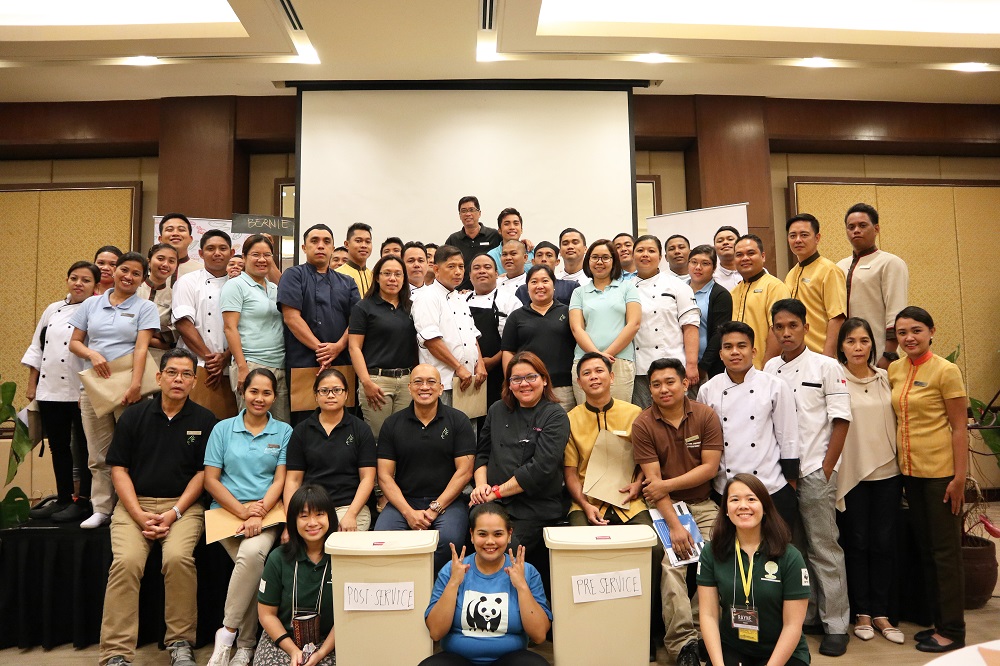
The participants of the second Food Waste Measurement Training for hotels, in partnership with Pico De Loro, along with several members of The Sustainable Diner project team. © Gabriel Villalon / WWF-Philippines
Last July 5, 2018, World Wide Fund for Nature (WWF) Philippines’ The Sustainable Diner: A Key Ingredient for Sustainable Tourism project conducted its second Food Waste Management Training for Hotels in partnership with Pico De Loro Beach and Country Club, in Nasugbu, Batangas. Representatives from different departments - Kitchen, Service, Purchasing/ Cost Control, Hygiene, Stewarding, Finance, Human Resource, Marketing, Engineering, Banquet and Sales - joined the project team for a half-day session, learning more about WWF’s food waste management tool for hotels and how this can be applied to their everyday operations.
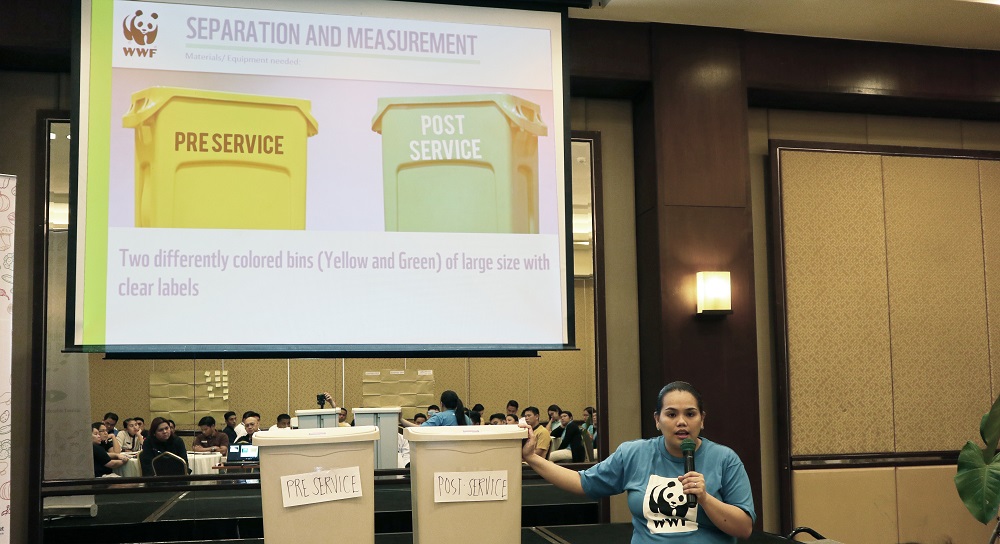
WWF Project Manager for Sustainable Consumption and Production in the Philippines, Melody Melo-Rijk, introducing the pre-service and post-service bins that will be set up for the food waste measurement part of the initiative. © Gabriel Villalon / WWF-Philippines
The overall goal is for partner companies and organizations to set up a food waste management system. The initial study will run a four-month implementation divided into two main parts: food waste separation and food waste measurement. After gathering and analyzing the necessary data collected from the property, WWF shall provide possible interventions to reduce food waste in their facility. The food waste management initiative is originally led by WWF US, in collaboration with the American Hotel and Lodging Association (AHLA), with the generous support from the Rockefeller Foundation.
Melody Melo-Rijk, WWF’s Project Manager for Sustainable Consumption and Production in the Philippines, welcomed the 50+ participants by giving a short introduction on The Sustainable Diner project as well as the Food Waste Management training - its inception, previous applications, and reason for implementation, which is to bring together different representatives from the hospitality and food service sector to improve the implementation of strategies geared towards the reduction of food waste. Maggie Garcia, Pico De Loro’s General Manager, also delivered her remarks, stating how vital it is for Pico De Loro to take food waste reduction seriously in order to fully embrace their role as the first development in Hamilo Coast - an area known as a “Premier Sustainable Coastal Resort Town”.
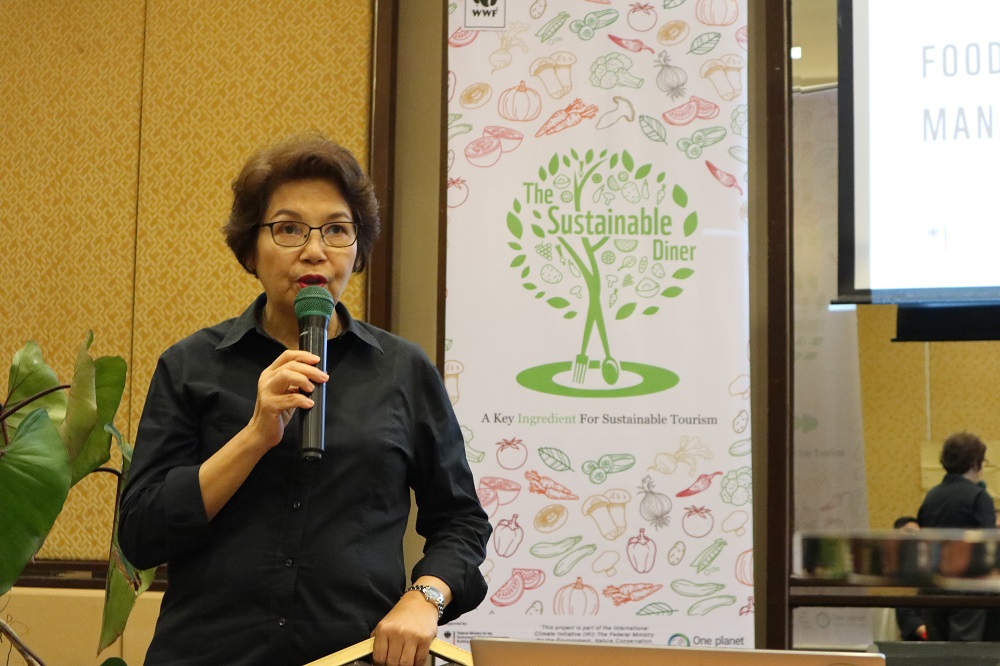
Pico De Loro’s General Manager, Maggie Garcia, delivers the welcoming remarks as well as a motivational message to her employees regarding food waste reduction and sustainability. © Gabriel Villalon / WWF-Philippines
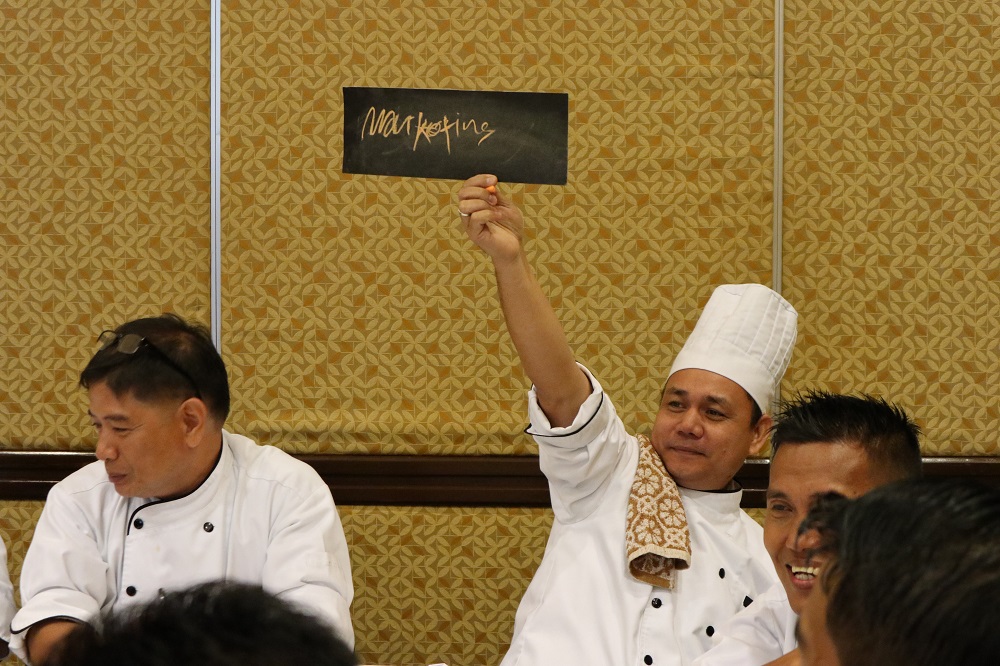
One of Pico De Loro’s employees confidently raising his team’s answer during one of the interactive group games. © Gabriel Villalon / WWF-Philippines
With the guidance of The Sustainable Diner project team, Pico De Loro will be conducting an initial data gathering process on the amount of food waste produced by their different restaurants - which includes Lagoa, Pico Restaurant and Bar, Sun Coral Cafe, and Reef Bar - as well as the banquet and events of the hotel, through the food waste measurement tool introduced by WWF. Because of the high employee turnout, the interactive group games became extra competitive, where everyone had fun showing their hospitality know-how. These interactive games served as an introductory platform for all new terms, department designations, and division of responsibilities related to the food waste management initiative.
The training session enabled Pico De Loro’s employees to discuss important decision points in the implementation of the initiative, in the presence of managers and supervisors from the different departments that make up the entire resort’s operations chain. The operations of the resort’s different restaurants were initially analyzed in order to identify important food waste production points, and waste bin locations were also pinpointed for swift and efficient measurement. The resort’s Food Waste Management Task Force was also finalized, with key players identified for the initial round of data gathering. Sample food waste items from the morning’s service were also brought for the food waste segregation simulation. The training session ended with a resort-wide implementation plan for the measurement part of the food waste management tool.
The Sustainable Diner project is confident that together with its partners, it is very possible to reduce the food waste problem we are experiencing in the Philippines!
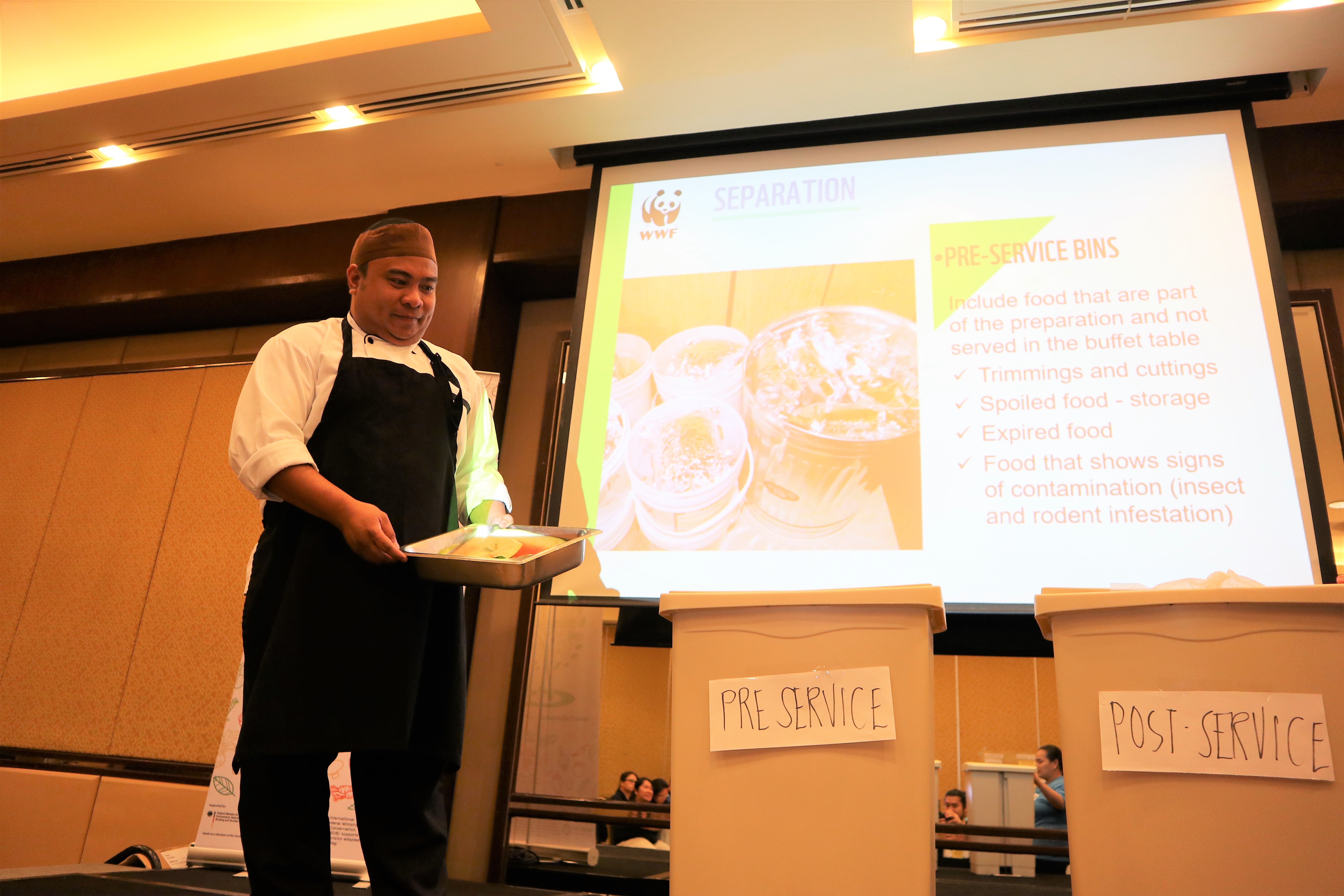
Live simulation of the food waste segregation process, using actual food waste generated from one of Pico De Loro’s restaurants during morning service. © Gabriel Villalon / WWF-Philippines
The Sustainable Diner project, under WWF-Philippines’ Sustainable Consumption and Production, is part of the International Climate Initiative (IKI). The Federal Ministry for the Environment, Nature Conservation, and Nuclear Safety (BMU) supports this initiative on the basis of a decision adopted by the German Bundestag.
